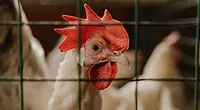Dairy Industrywide Food Safety Collaboration Aims to Protect the Public
As food manufacturers, we can have the best product, the most innovative marketing and extensive distribution networks, but we can’t sell a product without one essential element: consumer trust. Consumers rightly expect that they can trust the products we provide them are, at their core, safe.
In general, food companies and their hardworking, dedicated professionals do everything they can to produce high-quality, safe products. Over the years, the food industry has worked together to continuously improve and harness evolving science and updated insights. The dairy industry in particular has a long history of cooperation and setting standards through efforts like the 3-A and the Pasteurized Milk Ordinance. To raise the bar on food safety even higher, the dairy industry has been working together since 2010 through the Innovation Center for U.S. Dairy® (IC)[1] (see “Innovation Center for U.S. Dairy®”) to improve practices, maintain consumer trust here and abroad and protect the public. With the IC as the convener, experts from various dairy companies have aligned on food safety best practices, identified pathogen controls and built training courses. Along the way, participants have further improved their own practices and learned something equally important—the value of finding common ground among competitors and collaborating for the larger good.
In 2010, the Food Safety Committee of the IC was created to help the industry collectively improve practices and reduce risks in dairy foods. The objective of the committee is to strengthen manufacturing practices in all dairy processing facilities to diminish food safety risks that could compromise the reputation of the U.S. dairy industry. The actions of this group build on many years of previous efforts focused on quality and food safety to help ensure that the high confidence consumers already place in dairy foods will continue.
“I’m very proud of this program and the companies that have been dedicated to its success,” says Tom Hedge, vice president of technologies at Schreiber Foods and chairman of the IC Food Safety Committee. “Participating with this team of experts has provided an opportunity to do more for the industry. What we have found is that food safety is the ideal space for precompetitive collaboration. It’s a space where we can learn from each other without crossing competitive boundaries.”
The food safety program of the IC is committed to providing science-based tools that help companies ensure that food safety is deeply ingrained in their corporate culture as one of their highest priorities. Changing to a safety-first culture is a journey that requires commitment of the company CEO and a motivated staff.[2] Larry Jensen, president and CEO of Leprino Foods and chairman of the IC, says, “In a matter as significant as consumer confidence in the safety of dairy products, we can learn from other industry experiences. In many cases, we are only as good as our weakest link. This is not a competitive issue. It is important that we help float all boats.”
Impacting Food Safety through Multiple Initiatives
The collaborative work to improve food safety is complex. Because there are many ways to improve the control of pathogens in dairy processing, the IC Food Safety Team, a group of trainers, has remained focused by dividing the work into six action platforms: 1) pathogen control at large dairy manufacturers through Dairy Plant Food Safety Workshops; 2) Artisan and Farmstead Cheesemaker Food Safety Education Workshops; 3) controlling supplier/supply chain risks with online risk assessment tools and through Dairy Supplier Management Food Safety Workshops; 4) research into new pathogen control tools; 5) interactions with regulatory bodies to gain their guidance; and 6) working with auditing bodies to ensure dairy food safety is part of their training and auditing criteria. Below are more details on the action platforms.
Food Safety Workshops
These platforms utilize training workshops as a way to educate broadly and activate best practices. The food safety experts/trainers on these subteams work for large dairy manufacturers; each brings many years of experience and specific expertise. Each volunteer is actively supported by their company and encouraged to donate their time. It says a lot about the U.S. dairy industry that these experts sometimes train their competitors, and in the case of the artisan workshops, help segments of the industry where they do not do business. To date, over 1,600 individuals have attended these three workshops.
1. Dairy Plant Food Safety Workshops: The first major activity of the IC Food Safety Team was sharing best practices, aligning on the ones that are universal to all dairy facilities, developing best practices guidance documents and designing a training curriculum to widely disseminate those practices. A rotating group of subject-matter experts co-teaches each workshop. Through short lectures and hands-on small group exercises, participants learn best practices and practical approaches for in-plant pathogen control. Topics include pathogen environmental monitoring programs, microbiology basics, sanitation, swabbing and remediation strategies, evaluating sanitary equipment design and developing Sanitation Standard Operating Procedures. Since 2011, 18 workshops have been conducted at various locations around the country, which have reached over 900 students. Attendees have included plant managers, plant and corporate quality, production, sanitation and maintenance/engineering. Participants benefited from the rare opportunity to interact with industry experts and their peers from across the dairy industry. Each workshop has sponsors who provide locations and generously cover costs associated with the workshop (see “Workshop Sponsors”).
2. Artisan and Farmstead Cheese Food Safety Education Workshops: Artisanal cheeses continue to gain popularity with growing distribution through farmers markets, retail and foodservice establishments. As a result, the number of artisanal cheese-making operations is growing at impressive rates. These smaller, often on-farm, facilities have unique needs and challenges. To help this rapidly growing group of manufacturers, the IC offers resources on our website and a one-day introductory workshop that includes:
• Cheese chemistry and microbiology as they pertain to food safety
• Practices and techniques for pathogen control
• Pathogen environmental monitoring
• Good Manufacturing Practices, sanitation, preventive controls and food safety best practices
Most attendees are cheese makers from small operations looking to protect consumers and their businesses by learning food safety practices. Other attendees have included retail and foodservice cheese buyers, local regulatory and extension education professionals—all of whom help spread this knowledge. The workshop was first offered in 2012; a total of 18 sessions have been held, reaching over 550 attendees. The artisan effort goes beyond the companies involved with the IC and includes collaboration with regional dairy organizations, retail chains, universities, the American Cheese Society and other organizations. These sessions are sponsored by and organized through state and regional dairy checkoff groups and other organizations as mentioned earlier.
3. Supplier Food Safety Management: Food safety risks can be introduced from raw materials, packaging, uniforms, pallets, service providers and many products and services that come into a facility. To help companies determine the degree of risk introduced and to formulate control strategies, the IC Food Safety Team developed a risk calculator, food safety guidance documents and this workshop. Students learn about food safety risks and are able to practice building control strategies in small groups. This workshop is aimed at those involved with supplier quality management, procurement and suppliers. For more information and to register for 2015 trainings, visit www.usdairy.com/foodsafety.
Pathogen Research Platform
Since its inception, the IC Food Safety Team has focused on broadening the adoption of current tools and best practices. The purpose of this new research platform is to expand dairy’s tool kit by leveraging both industry and academic experts to identify gaps and charter precompetitive research. These research efforts will create new tools and practices to control Listeria in finished product and plant environments. The group convened this fall and we look forward to bringing you more information on this effort in the future.
We’ve Learned How to Work Together and Build Trust
“Collaboration doesn’t come naturally to competitors,” says Tom Hedge. One unexpected benefit during the 4 years of this collaboration is how well staff from different companies have learned to work together to get things done. “In addition to achieving a first-of-its-kind program for dairy, the dozens of subject-matter experts who invest their expertise on behalf of the industry have assumed some very focused roles. There is a resulting efficiency combined with a willingness to participate, which has been remarkable.” Joe Stout, CEO of CF-Sanitation and leader of the Dairy Plant Food Safety Workshops, puts it a different way: “We didn’t know where we would go when the team started, but once empowered, there were no limits.”
Building a strong volunteer collaboration doesn’t happen overnight, but here are some things that help:
Be focused and share openly. It is important to stick to the objective and maintain focus only on food safety-related topics such as sanitation, pathogen environmental monitoring and sanitary design. Some of the team’s best sharing was on mundane topics like “best practices for floor design,” “how to clean a drain” and “vectoring strategies after a positive swab result,” but this type of sharing led to a powerful set of best practices tools.
Be mindful and respectful of resources. Remember that collaborative efforts are staffed by volunteers and they are incidental to everyone’s day job. Be careful not to take on too many new initiatives at once and try to spread the work out in a way that works for everyone. Some team members might spend more than 10 percent of their time during intense periods, whereas others help train one class a year. Each person makes a unique contribution to the overall effort. Keep in mind that everyone wears multiple hats and has a very busy schedule.
Be patient and build trust. Even though food safety professionals are used to sharing, it still took awhile to build trust. In our initial meetings, for example, no one wanted to volunteer examples of specific food safety concerns and solutions. Now individuals are more comfortable and even eager to share freely during classroom exercises.
Celebrate and have fun. Just as you would with a company’s internal team, make sure to pause once in a while to celebrate your accomplishments. Say “thank you.” We have a great group of volunteers, and the team has grown steadily. The vast majority of the original members are still active—which is a great testament to how rewarding the work has been. For many, this is a way to work with peers who have the same interests, background and job responsibilities—an opportunity they may not get within their own companies.
What’s Next?
We are encouraged by the progress we’ve made so far, are inspired by our workshop participants and trainers—and are grateful to all the executives and experts who have contributed to the program’s success. According to Tom Hedge, “the best is yet to come,” as the team maintains its current efforts while establishing the global Listeria research platform—which will give all participating companies access to top scientists and a voice in setting scientific priorities.
Those of you working in the dairy industry who haven’t yet attended one of our workshops, check www.usdairy.com/events for 2015 dates and locations. In addition, workshop details and valuable resources such as the best practices documents and supplier risk assessment tools are available at www.usdairy.com/foodsafety.
Timothy Stubbs is the vice president of product research with Dairy Management Inc.®, where he coordinates university research programs and leads the food safety collaboration of the Innovation Center for U.S. Dairy. Tim holds a B.Sc. in chemical engineering and has 25 years of research and development experience with major food companies.
References
1. www.USDairy.com.
2. www.food-safety.com/magazine-archive1/junejuly-2013/creating-a-culture-of-food-safety/.
Looking for quick answers on food safety topics?
Try Ask FSM, our new smart AI search tool.
Ask FSM →








